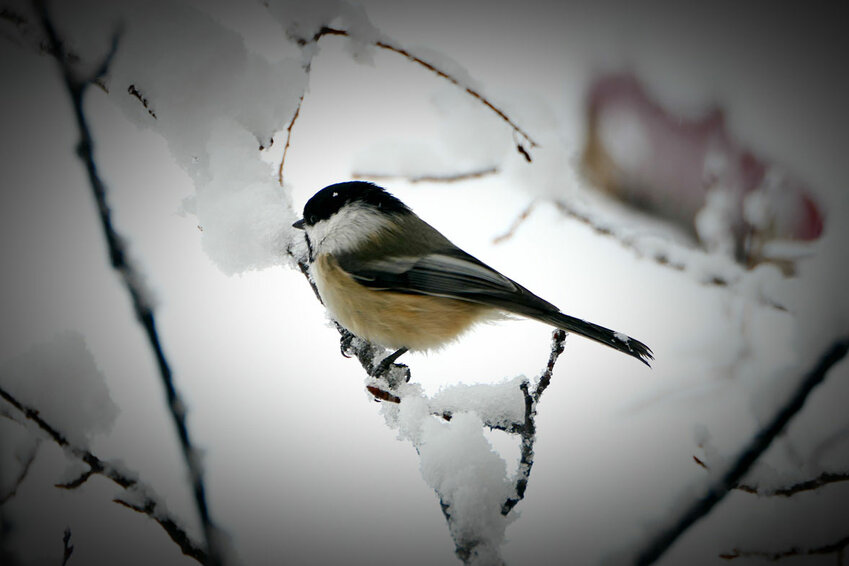
Photo courtesy Charles Martinez
This week’s Bird of the Week, compliments of the Weminuche Audubon Society and Audubon Rockies, is the black-capped chickadee.
These active little birds are so darned cute that they brighten a dreary winter day. Curious and social, they are easy to attract to feeders and nest boxes and can become tame enough to eat from an outstretched hand. Their habit of grabbing one sunflower seed and taking off makes it difficult to figure out just how many are hiding in the bushes.
Perched on a limb, one holds a shell between its feet and hammers it open with the bill. Another bird that hides seeds for later consumption, this one is capable of recalling the locations of thousands of hiding places. In fall, it increases its memory capacity when neurons in the brain with old information die, allowing new ones to grow and store useful information. In spring when increased spatial memory is not as vital, the brain shrinks back to a normal size.
Though they are commonly known for the chick-a-dee-dee-dee call that sings their name, at least 15 different sounds that communicate territory, alarm, location, dominance and other social interactions are recognized. In late winter, males start to define their breeding territories with the familiar, two note fee-bee song.
In North America, seven species of chickadees are identified, with the black-capped found year-round across Canada and the northern half of the United States. This small gray bird with a black cap and bib has buffy-colored flanks and white cheeks and underparts. The similar mountain chickadee, also found here, has a white eyebrow stripe and is not quite as colorful.
In winter, black-capped chickadees live in small flocks which defend a nonbreeding territory of around 20 acres. At night they take refuge either alone or in a small group in a tree cavity, huddling together and lowering their body temperatures to survive the cold. They are often found in the company of other small birds including kinglets, creepers, nuthatches and small woodpeckers.
Challenge yourself to learn chickadee calls and associate them with the season and with what the bird is doing.
For information on events, visit www.weminucheaudubon.org and www.facebook.com/weminucheaudubon/.